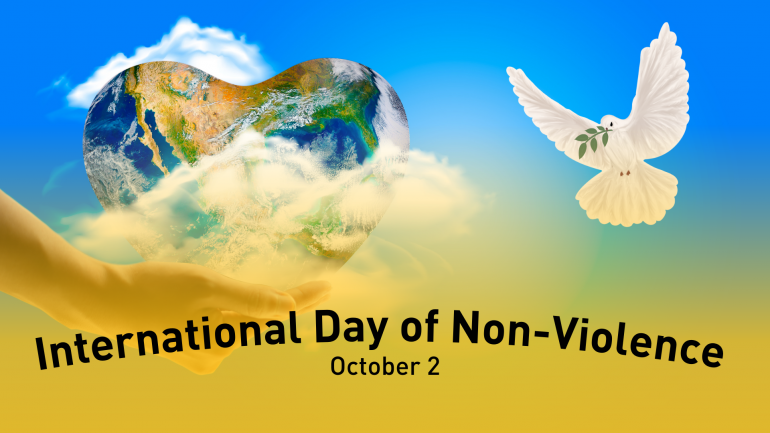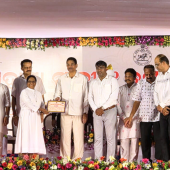The International Day of Non-Violence

The International Day of Non-Violence is observed on October 2, the birthday of Mahatma Gandhi, leader of the Indian independence movement and pioneer of the philosophy and strategy of non-violence.
In January 2004, Iranian Nobel laureate Shirin Ebadi took a proposal for an International Day of Non-Violence from a Hindi teacher in Paris, France, teaching international students to the World Social Forum in Mumbai, western India.
According to General Assembly resolution A/RES/61/271 of June 15, 2007, which established the commemoration, International Day is an occasion to "disseminate the message of non-violence, including through education and public awareness."
The resolution reaffirms "the universal relevance of the principle of non-violence" and the desire "to secure a culture of peace, tolerance, understanding and non-violence".
The purpose of non-violence is to say "No to Violence."
Introducing the resolution in the General Assembly on behalf of 140 co-sponsors, India’s Minister of State for External Affairs, Mr. Anand Sharma, said that the wide and diverse sponsorship of the resolution was a reflection of the universal respect for Mahatma Gandhi and of the enduring relevance of his philosophy.
Quoting the late leader’s own words, he said: "Non-violence is the greatest force at the disposal of mankind. It is mightier than the mightiest weapon of destruction devised by the ingenuity of man."
The term "non-violence" has been used so often in the last century that its meaning has taken on new forms. Often believed to be a synonym for pacifism, which it can be, it’s also been adopted by groups around the world to be a force for social change rather than strictly opposed to war.
Through education and awareness, the UN hopes to share the many forms of non-violence that we have today.
"Only brave men and women can bring peace to the world, not by practicing war but by practicing nonviolence," said Amit Ray, an Indian author, who is known for his teachings on peace and compassion.
In the end, I would like to say that we must learn to practice nonviolence with one another in our day-to-day interactions.
Radio Veritas Asia (RVA), a media platform of the Catholic Church, aims to share Christ. RVA started in 1969 as a continental Catholic radio station to serve Asian countries in their respective local language, thus earning the tag “the Voice of Asian Christianity.” Responding to the emerging context, RVA embraced media platforms to connect with the global Asian audience via its 21 language websites and various social media platforms.














